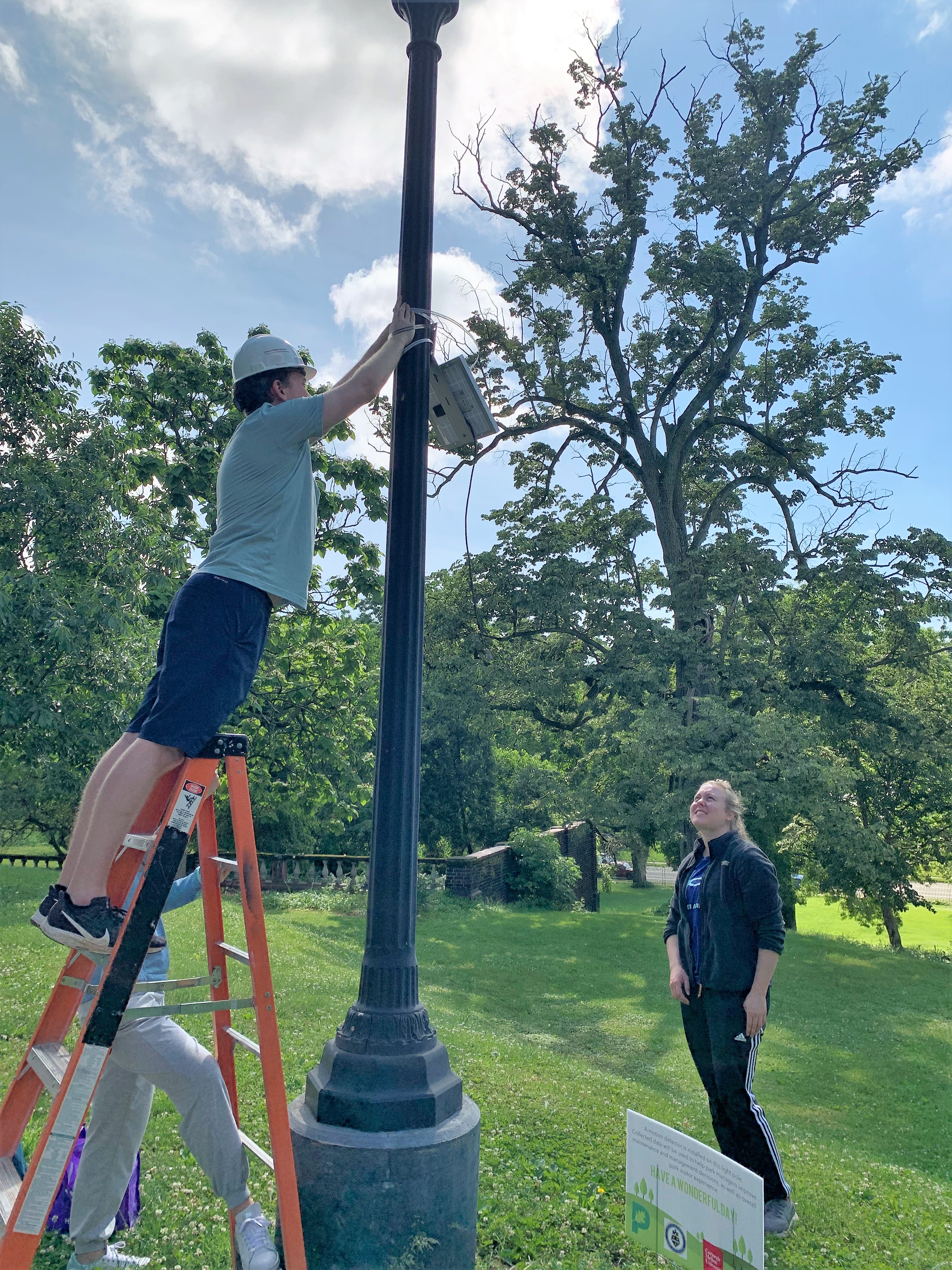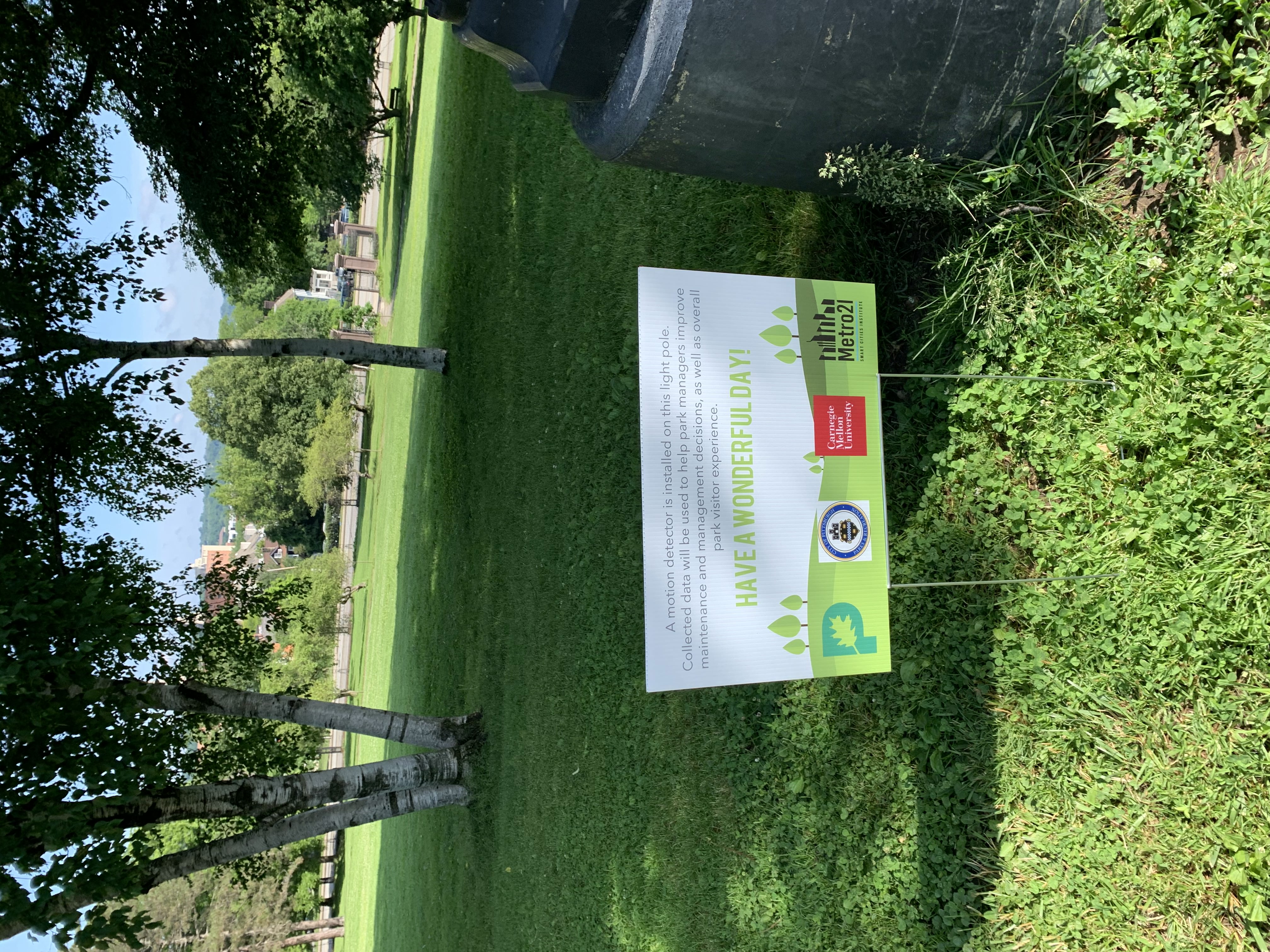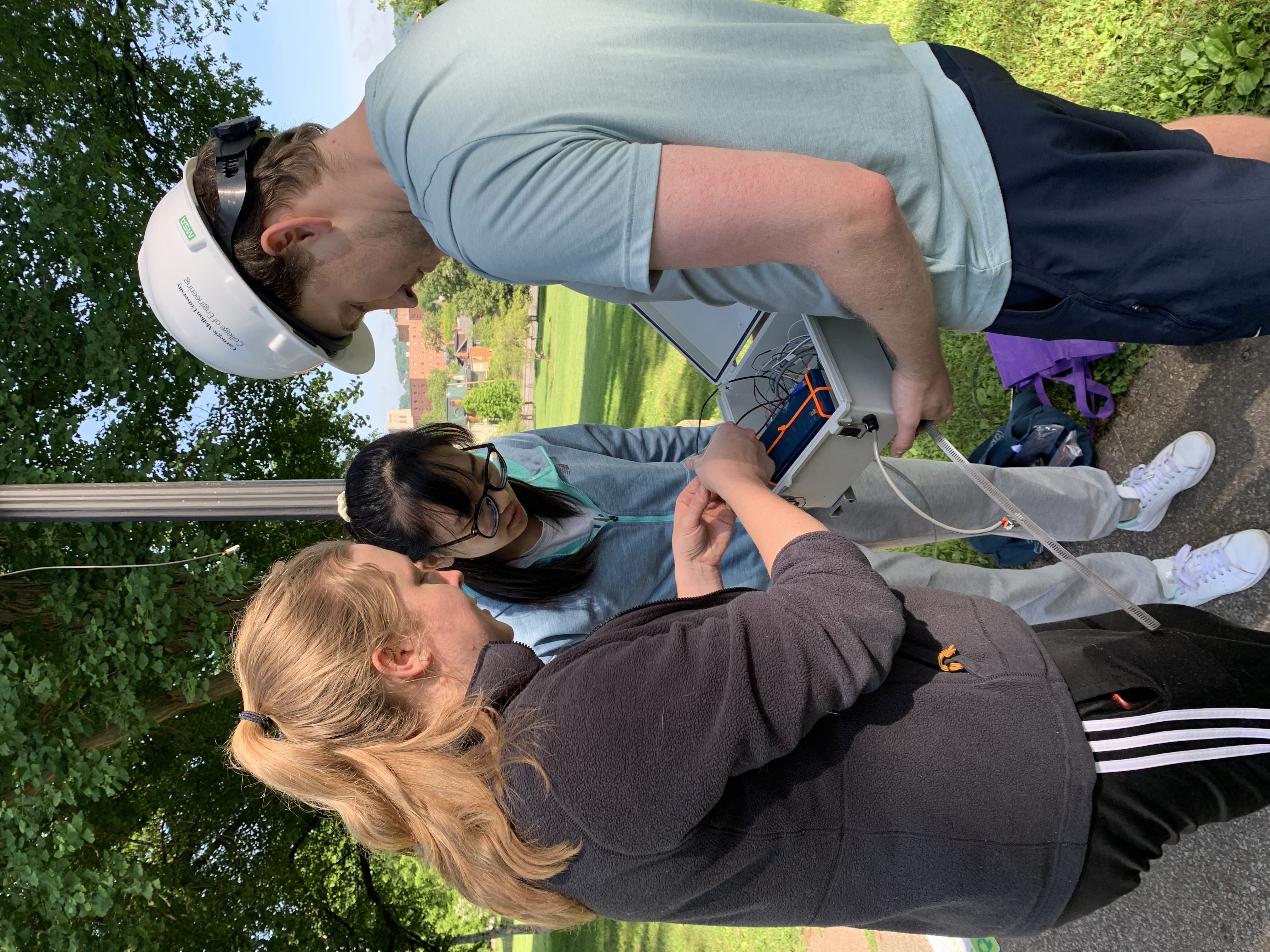
Smart and Equitable Parks
Smart Parks will seek to explore social infrastructure (e.g., urban park) use and correlate use related to mobility services (i.e., their quantitative linkage to economic growth through equitable access to essential services) using cyber-physical system technologies in order to bring to light ways in which city officials and planners can quantify data-driven returns on potential investments to parks and mobility services and implement changes that will uniformly distribute these benefits.
This project will obtain, process, and analyze several types of data including: 1) GIS map data for understanding community network topologies and transportation properties; 2) traffic use data (for both public transportation and walkable/bikeable pathways) measured using Urbano nodes (configured with passive infrared sensors), as well as traffic data, under different circumstances; 3) environmental data measured using Urbano nodes (configured with NO2, SO2, O3, PM2.5, and noise intensity sensors) at parks to inform nodal weights within the network.
The team will partner with the City of Pittsburgh and the Pittsburgh Parks Conservancy to implement the proposed framework within a Pittsburgh community and collect all in situ measurements from a distributed network of Urbano nodes. Due to the investment of time and resources needed to collect data, it will be of the highest priority to ensure data quality, protect collected data, clearly communicate results derived from the data, and maintain the data in archival storage(all discussed subsequently).The data will be stored and managed in a cloud-based server and backed up on a local server at CMU. Looking at the data flow between Urbano nodes and the cloud, the Amazon Web Services (AWS) IoT Core will be used to connect Urbano nodes with the cloud, AWS Lambda and AWS S3 will be used to manage computing and storage, respectively, and Plotly will be used to visualize data on a website managed by the research team and accessible to stakeholders.
Project Team:
Carnegie Mellon University


